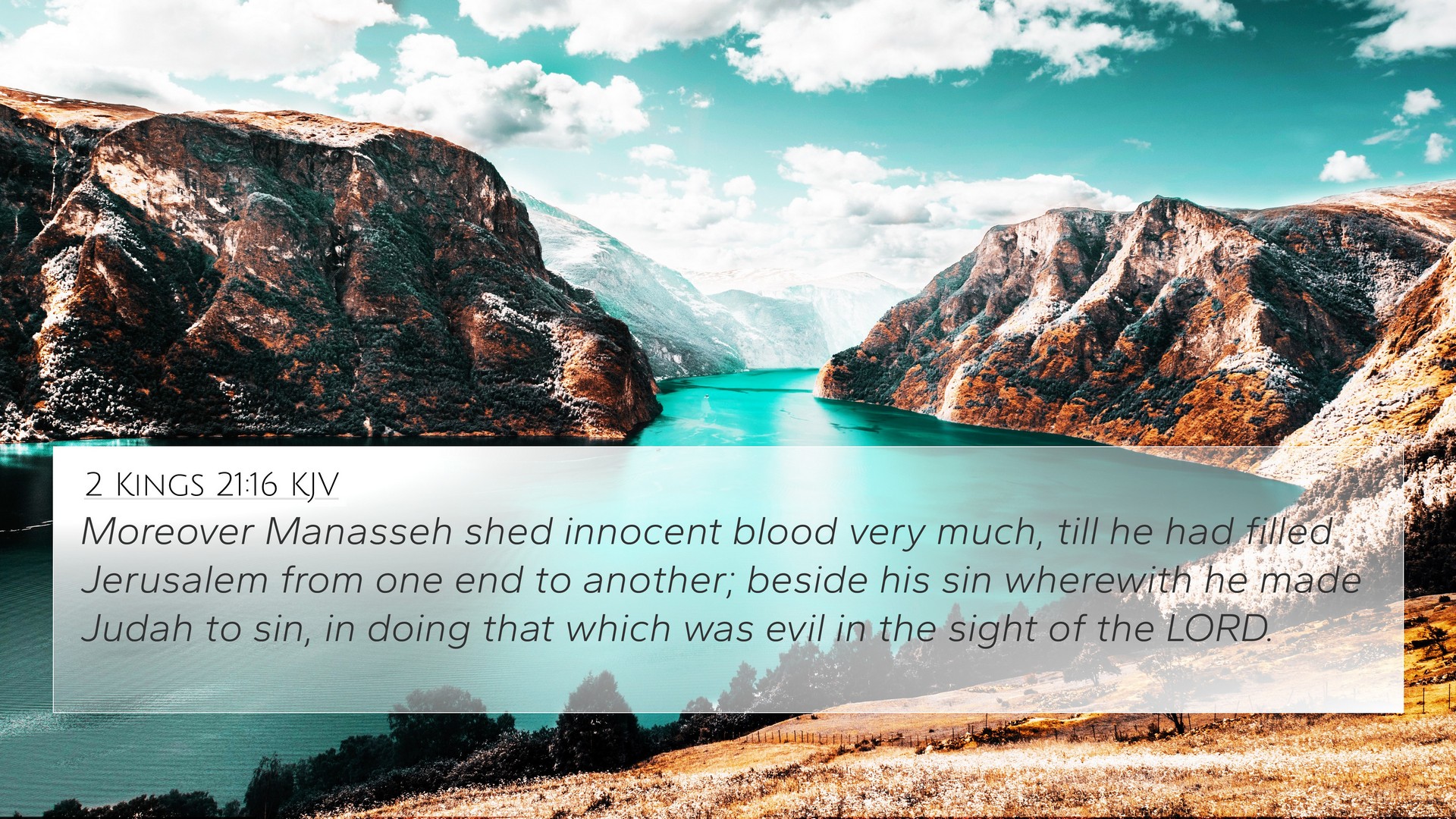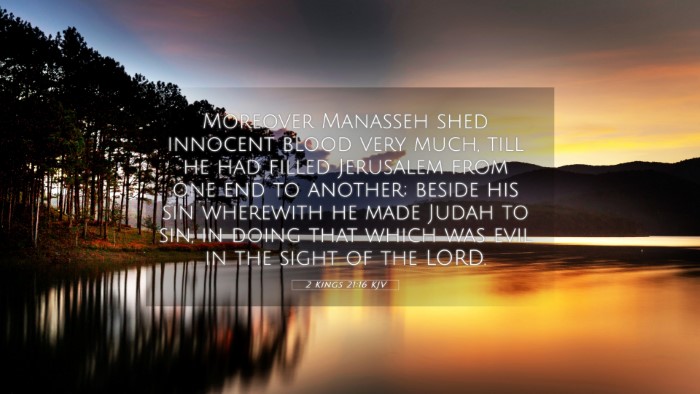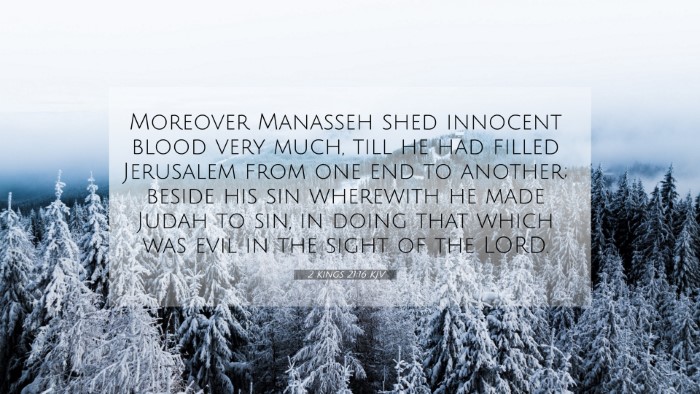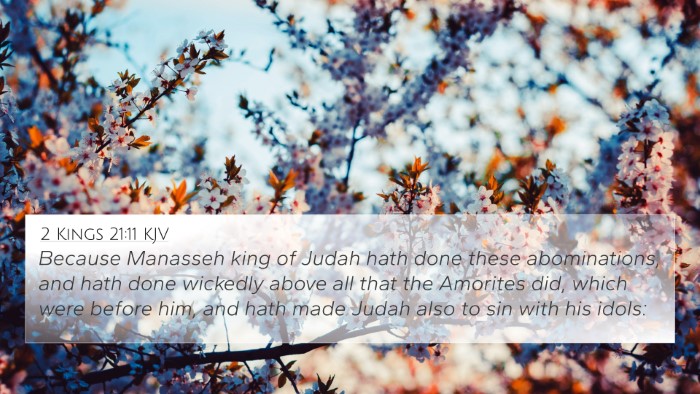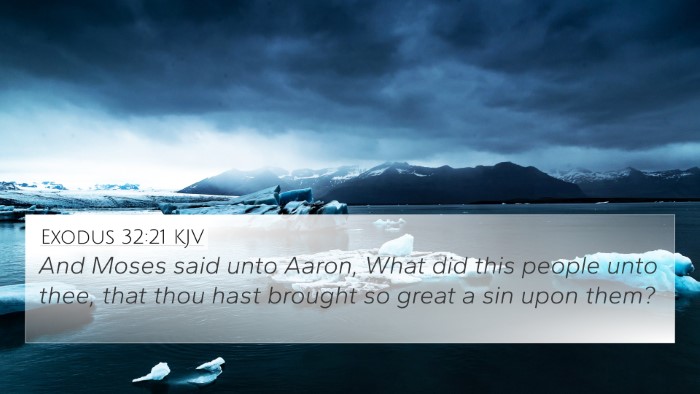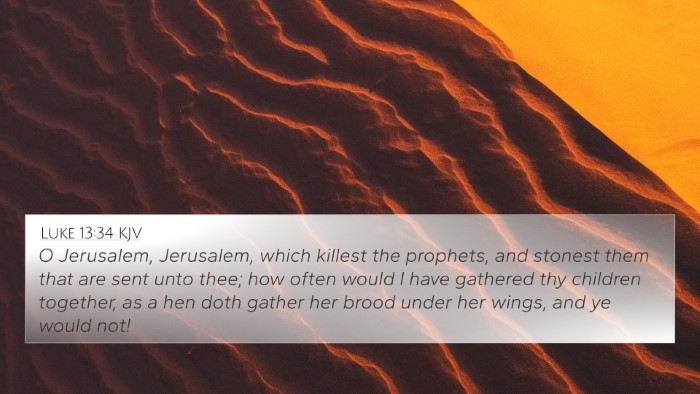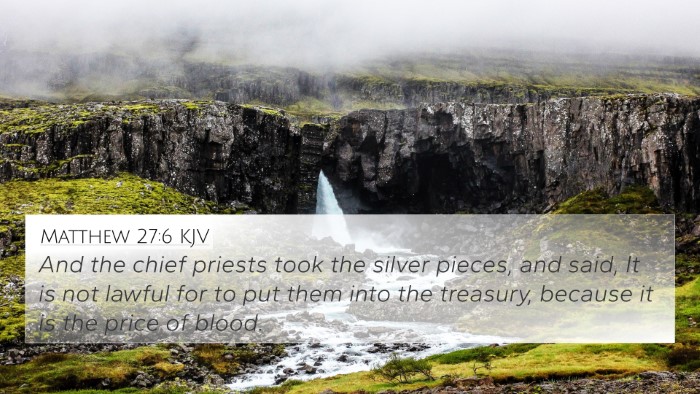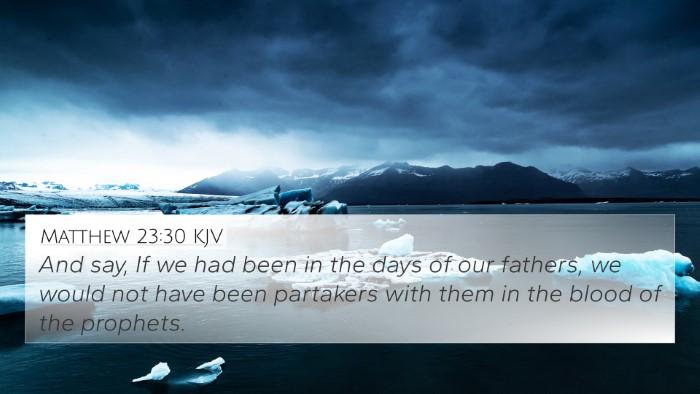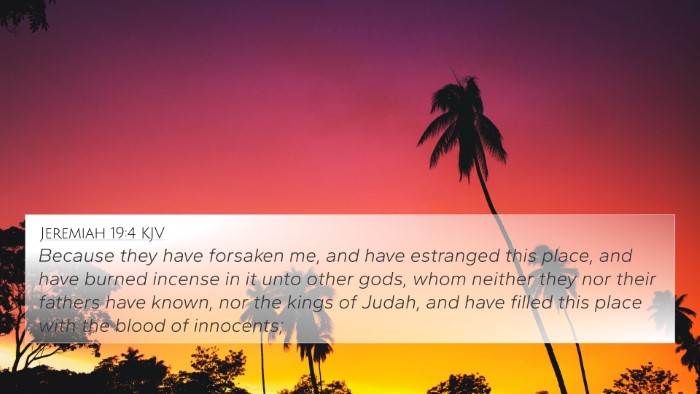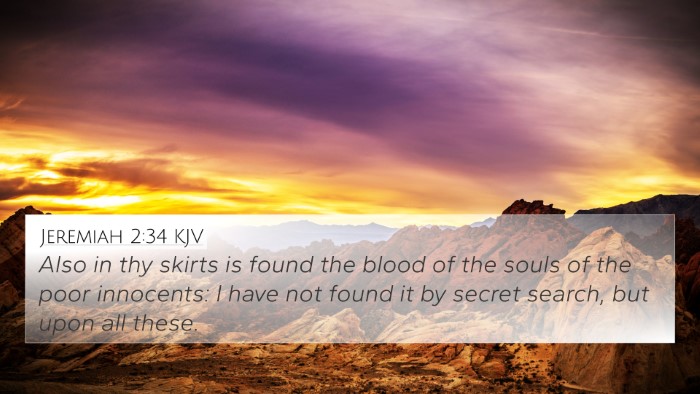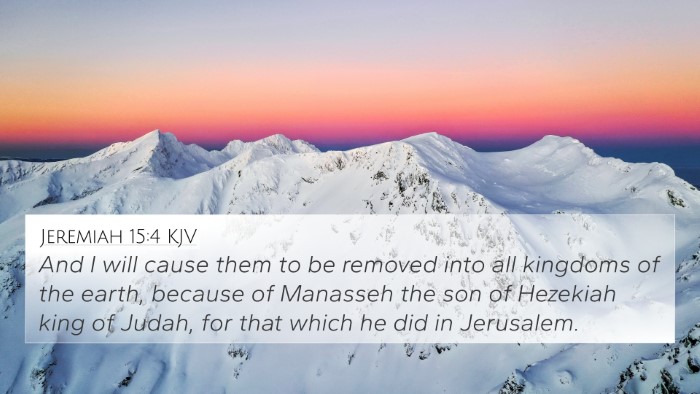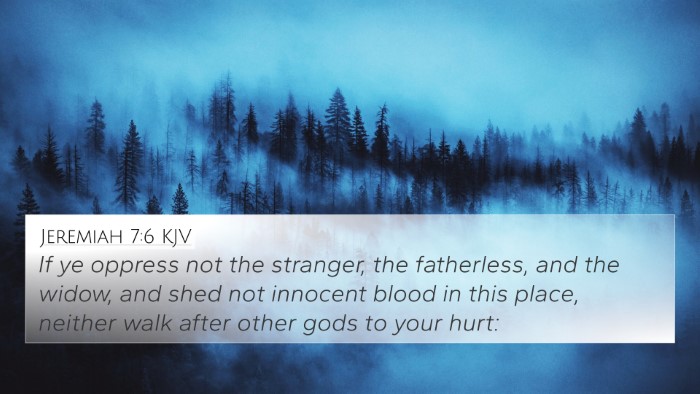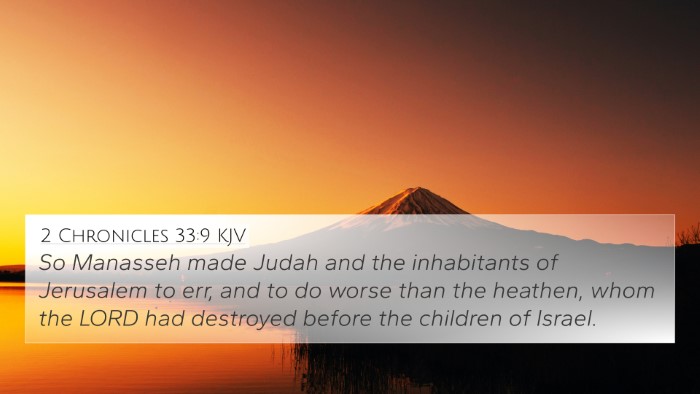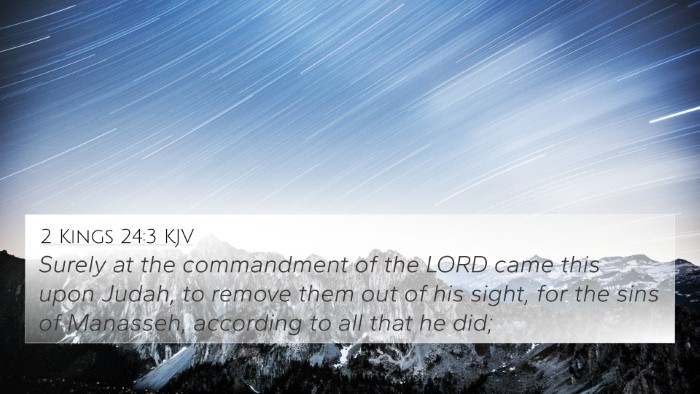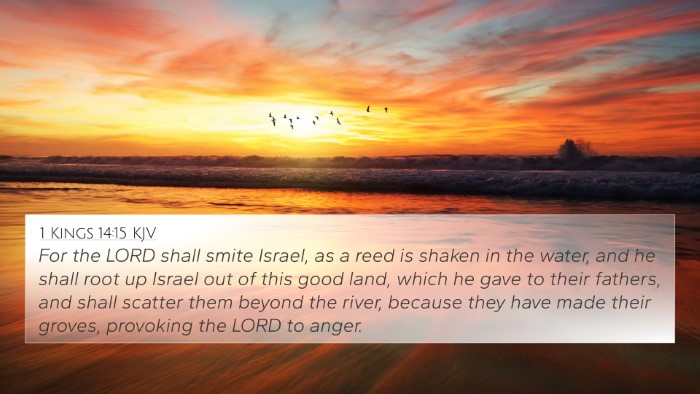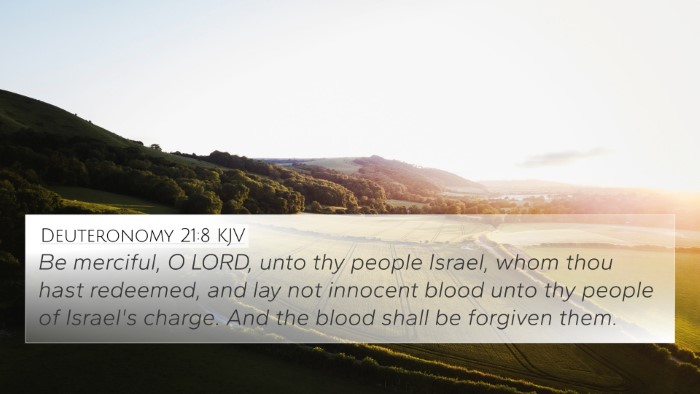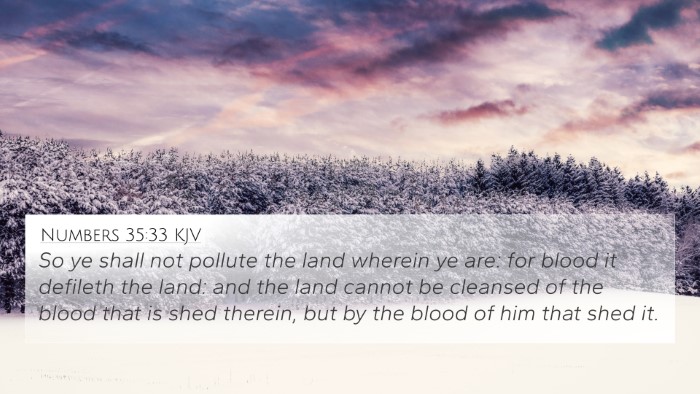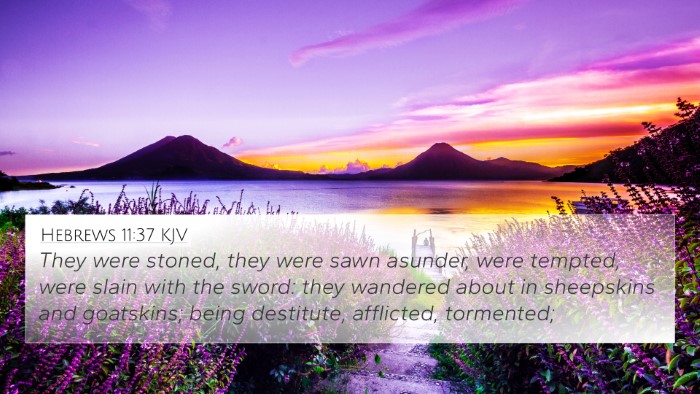Understanding 2 Kings 21:16
2 Kings 21:16 states: "Moreover Manasseh shed innocent blood very much, till he had filled Jerusalem from one end to another; besides his sin wherewith he made Judah to sin, in doing that which was evil in the sight of the LORD." This verse highlights the grave sins committed by King Manasseh and illustrates the consequences of leading a nation away from God.
Summary of Key Themes
- Manasseh's Reign: Manasseh's rule was marked by extreme wickedness, including idolatry and the persecution of the faithful.
- Shed Innocent Blood: This refers to the violence and oppression enacted by Manasseh, particularly against the prophets and the innocent.
- Evil in the Sight of the LORD: The repeated emphasis on actions considered evil in God's eyes underlines the seriousness of Manasseh's sins.
- Judah's Responses: The impact of Manasseh's actions led Judah into sin, signifying a deterioration of spiritual and moral standards.
- Historical Context: Understanding this verse requires knowledge of the political and spiritual landscape of Israel and Judah during Manasseh's reign.
Insights from Commentaries
Matthew Henry: Henry emphasizes the idea that Manasseh's reign was a stark indication of how deeply sin can affect an entire nation. His evil acts not only caused personal ruin but also national judgment as innocent lives were lost, highlighting the weight of bloodshed and sin. It serves as a warning against the consequences of forsaking God.
Albert Barnes: Barnes focuses on the depth of Manasseh's sin, noting his willful decision to turn away from God's laws. Manasseh's failures are compared to those of other kings, illustrating that while some sinned, his bloodshed was unprecedented. Barnes connects this to the broader narrative of Israel's rebellion against God, indicating a serious path leading to destruction.
Adam Clarke: Clarke provides insights into the cultural background of the Israelites, illustrating that practices during Manasseh’s reign akin to those of neighboring nations resulted in a spiritual abyss. He explains how Manasseh’s blatant idolatry and the subsequent murder of innocent people signify a foundational rebellion against God's covenant.
Related Bible Cross-References
- 2 Kings 24:3-4 - Discusses the judgment against Judah for the sins of Manasseh.
- Jeremiah 15:4 - States that Manasseh’s actions led to disaster for Judah.
- 2 Chronicles 33:1-9 - A parallel account that details Manasseh's idolatrous practices.
- Isaiah 57:1 - Addresses the plight of the righteous being taken away from evil.
- Matthew 23:35 - Jesus references the blood of the prophets shed from Abel to Zechariah, linking to the theme of innocent bloodshed.
- Revelation 16:6 - Speaks of the martyrs and the judgment deserved for bloodshed upon the earth.
- Deuteronomy 19:10 - Highlights the importance of not shedding innocent blood in Israel.
Thematic Connections
The verse establishes several thematic connections between judgment, sin, and bloodshed in biblical texts. The shedding of innocent blood has significant implications throughout the Bible, reinforcing God’s view on justice and righteousness.
Connections Between Bible Verses
When exploring biblical connections, this verse can be linked to various concepts and teachings across the scriptures. Here are some insights:
- The concepts of divine judgment and repentance are evident in both the Old and New Testaments.
- Many biblical verses highlight the importance of maintaining justice and righteousness (e.g., Micah 6:8).
- The consequences of sin leading to national catastrophe resonate in various prophetic texts.
Application and Interpretation
This verse serves as a powerful reminder of the importance of leadership in guiding a nation towards righteousness. It underscores the responsibility that leaders hold and how their actions can ripple through generations, influencing the moral fabric of society. In contemporary contexts, it calls for reflection on justice, governance, and personal conduct.
Using Bible Cross-References for Deeper Study
For those wanting to dive deeper into the implications of this verse and its themes, utilizing tools for cross-referencing can significantly enhance study:
- Bible Concordance: A guide to finding related passages and themes.
- Cross-reference Bible Study: Engage with varying texts that address similar issues.
- Bible Reference Resources: Such as commentaries and study guides that provide context and insights.
Conclusion
2 Kings 21:16 serves as a poignant reminder of the dire consequences of ungodly leadership and the importance of righteousness. The verse, enriched by historical and theological insights, reinforces the value of understanding scripture in a holistic way, leading to a deeper appreciation of God's calls for justice, repentance, and spiritual integrity.
